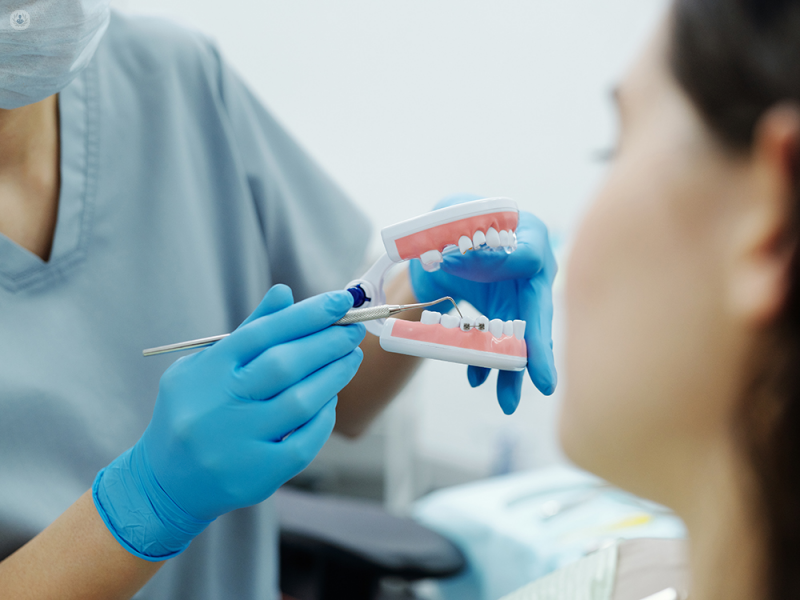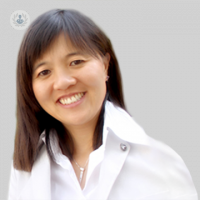Top 5 reasons to visit an orthodontist
Written by:Many people believe that only children and teenagers need to see an orthodontist, however, the truth is people of all ages regularly visit the orthodontist to receive specialised treatment.
Dr Moira Wong, one of our top orthodontists based in London, reveals the top five top reasons people visit an orthodontist.

What does an orthodontist do?
An orthodontist is a dentist that has specialised in correcting tooth position, for both functional and aesthetic reasons, and looks after the developing mouth, jaws and teeth. A specialist orthodontist has undergone a minimum of 3 years of additional training at the post-graduate level.
Some dentists provide orthodontic treatment, but they aren’t fully trained as orthodontic specialists. They may only undertake simple cases but they haven’t actually done any formal specialist training.
What are the top reasons to visit an orthodontist?
1. To prevent dental problems in the future
I like to see children around the age of 8 years old to work out how their teeth and jaws are developing - not necessarily to start treatment. The idea is to screen them to see if they are likely to need any treatment in the near future. It is more of a preventative approach to stop problems such as overcrowding of the teeth in adulthood.
Additionally, an overbite and underbite are best treated when a patient is young. So, we can look for signs to see if a child will need corrective treatment to be able to plan and influence the way the child grows. You can find more information on this in my previous article which covers malocclusion in children.
2. To diagnose and treat any problems with their bite
Around the age of 6 years old, a child’s adult teeth start to come through. During this period, we can diagnose any problems with their bite and offer the correct treatment. The earlier an over- or underbite is addressed, the more effective treatment is.
Adults can also easily receive treatment for problems with their bite and there is a range of treatments available from braces to Invisalign Clear Aligners.
3. Crowding or spaces between teeth
Many people don’t realise but teeth continue to move even during adulthood. I often see adults above the age of 40 with spaces or lower anterior crowding. It’s actually rather common, and they come to see me when they begin to notice that their teeth are worsening as they get older.
4. Jaw deformities
Deformities of the jaw usually occur when the jaw (upper and lower) has grown too much, too far forward or to one side, creating facial asymmetry and malocclusion. I often see patients that already know they have a jaw deformity. Treatment depends on the severity of the case, but usually involves a combination of braces and surgery.
5. Sudden changes in the position of teeth
Many people come to see me because they’ve noticed a sudden change in the position of their teeth over one to two years. There can be many reasons for this but one of the commonest causes is periodontitis (gum disease). I work closely with a periodontist to ensure that we treat it effectively and get everything back to normal.
Any sudden changes in a person's teeth are not normal. If you are noticing this, you should really see an orthodontist to get this checked out.
What should I consider when choosing an orthodontist?
Usually, when looking for a good orthodontist, parents will ask other parents for a recommendation - word of mouth is very powerful!
If you are a parent, I always recommend that you choose an orthodontist that your child likes and is comfortable with. It’s important to listen to your child because they are usually the best judges in these situations!
Additionally, you should ensure the orthodontist is very experienced by doing your own research. You can even ask has the specialist who is treating you if they have undergone the three additional training years, because if not, then it means they haven’t taken part in a specialist training program.
If you don’t feel comfortable asking them for proof of their qualifications face-to-face, you can usually find information about them online. In the UK, the way we determine if someone has the additional training is by seeing if they have the letters MOrth and RCS after their name. MOrth stands for Membership in Orthodontics and is a membership diploma that equips general dentists with expertise in orthodontic treatments. RCS stands for the Royal College of Surgeons and is an independent professional body that regulates surgery and dentistry in England and Wales.
Dr Moira Wong is a highly accomplished orthodontist based in London. To make an appointment with her, visit her Top Doctors profile and check her availability.


